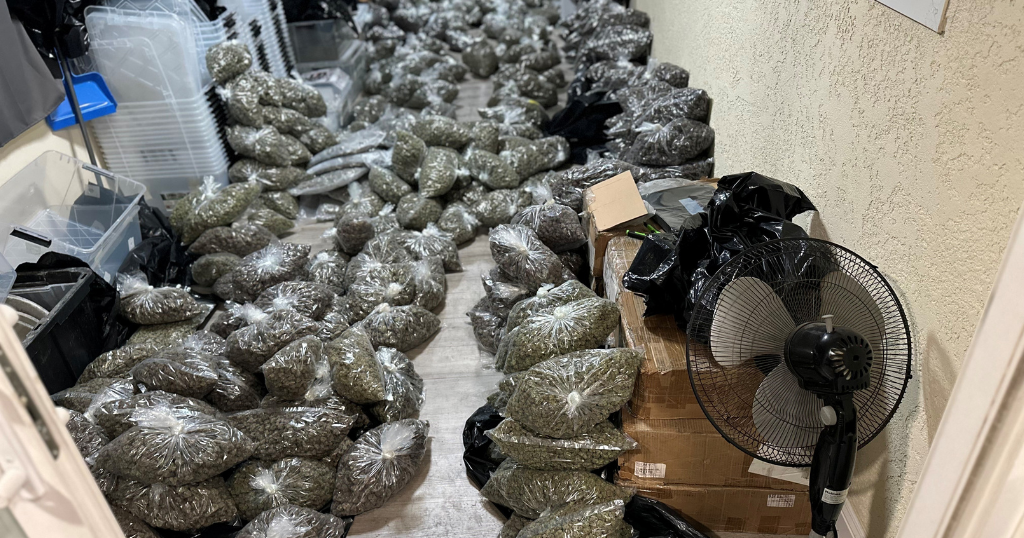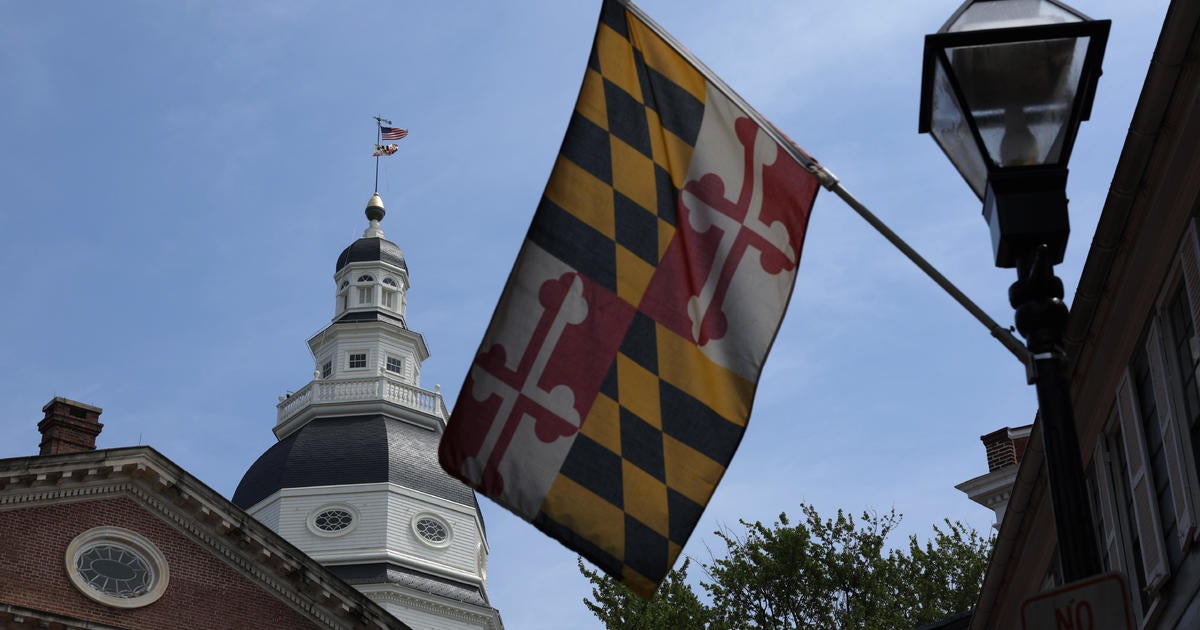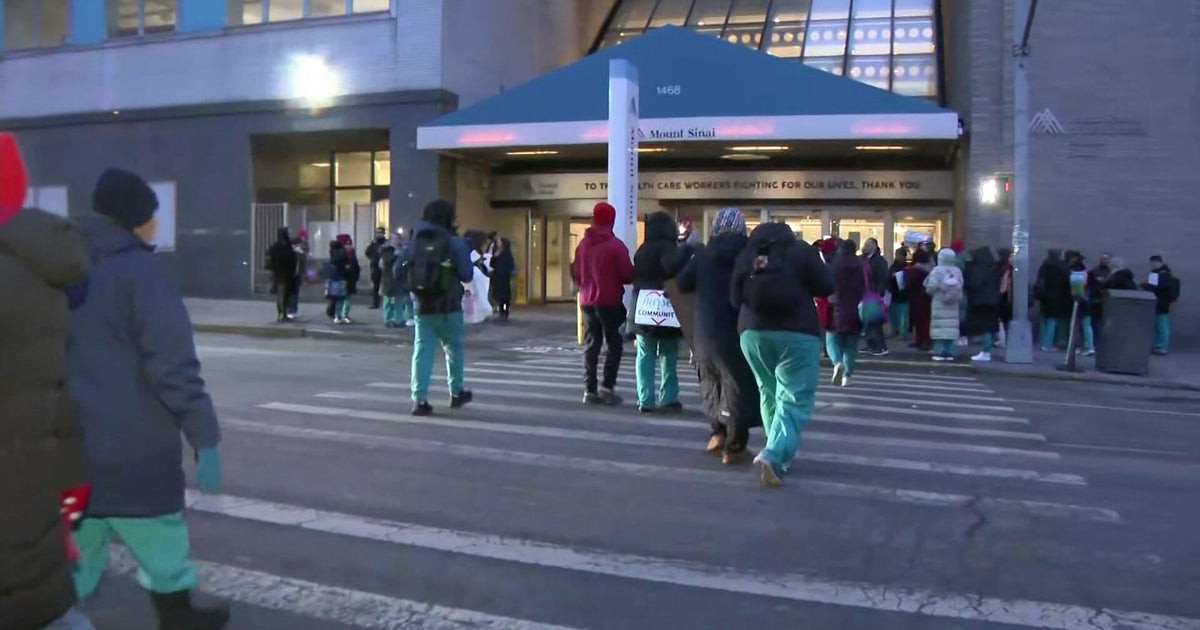Marijuana Bill Moving To Full Senate
Follow CBSMIAMI.COM: Facebook | Twitter
TALLAHASSEE (CBSMiami/NSF) – A bill on its way to the Senate floor for a vote would eliminate the 90-day requirement for Florida patients purchasing marijuana on a doctor's recommendation.
The possibility of a wait time remains one of the biggest patient-focused differences between House and Senate measures crafted to carry out a constitutional amendment – overwhelmingly approved by voters in November – that legalized marijuana for a broad swath of people with debilitating medical conditions.
Other major distinctions between the two chambers involve the number of businesses licensed to grow, process and distribute marijuana products throughout the state and the number of dispensaries each licensee would be allowed to operate.
The Senate Appropriations Committee on Tuesday overwhelmingly approved a plan (SB 406) sponsored by Sen. Rob Bradley, a Fleming Island Republican who helped craft a 2014 law that legalized non-euphoric marijuana for patients with chronic muscle spasms, epilepsy or cancer. The Legislature updated the law last year to allow full-strength marijuana for terminally ill patients, partly in anticipation of the November amendment's passage.
Bradley's new measure is supported by backers of the constitutional amendment, commonly known as Amendment 2. It would require that state health officials add five new licenses for "medical marijuana treatment centers," currently called "dispensing organizations." Seven license have already been granted. The Senate proposal would also require the Department of Health to add more licenses as the number of patients in a statewide registry reaches certain benchmarks.
The Senate plan would also cap at three the number of retail outlets each medical marijuana treatment center could operate, now unlimited under current law.
Bradley has said he believes the limited number of dispensaries per license is too low, but the cap is likely to be used as a bargaining chip as he and House Majority Leader Ray Rodrigues, who is spearheading the House's marijuana plan, seek to reach agreement on a bill before the legislative session ends May 5.
The Senate committee also tweaked Bradley's bill Tuesday to allow "snowbirds" who are eligible for marijuana treatment in other states and will reside in Florida for at least three months to be able to purchase marijuana here.
Patients, caregivers and supporters of Amendment 2 have flooded the Capitol over the past few weeks, urging lawmakers to spurn the House plan in favor of the Senate version. Both chambers' measures are ready for full floor votes as early as this week.
"The Senate keeps making their bill better, while the House keeps making theirs worse, and I've got to hope they can meet in the middle with these negotiations," Ben Pollara, the campaign manager for the political committee that backed Amendment 2, told reporters after Tuesday's meeting.
Stephani Scruggs Bowen's husband, Michael, had a seizure last week during a committee meeting as he was waiting to testify on the Senate proposal. Stephani Bowen, who told the Senate panel Tuesday she was speaking on her husband's behalf because he bit his tongue during last week's seizure, said she and her husband are lifelong Republicans who have been politically active for years.
"To say we're part of the religious right would be an understatement," Bowen, who lives in Pensacola, said.
She warned Republicans not to believe that restricting access to medical marijuana would endear them to GOP voters.
"It's similar to the primary, where my husband and I worked in state roles for the Trump campaign, where everybody knew they were going to happily vote for Donald Trump but they didn't want to tell their sisters, their mothers, and their brothers about it because they didn't want to get judged. In the meantime, we won 66 out of 67 counties. It's the same with Amendment 2," she said.
She also advised lawmakers to increase competition within the state, which she said would help bring down prices.
Holding a bottle of what she said was low-THC oil, the treatment used for her husband's epilepsy-caused seizures, Bowen said she paid $500 for the product purchased out of state.
"The exact same medication from a Florida grower will cost us $3,000 a month," Bowen said.
Sen. Jeff Brandes, R-St. Petersburg, raised concerns about the current law, which would allow license holders to contract out for virtually all functions, including growing marijuana or retailing the products.
Bradley said such subcontracting would be permitted in the Senate bill, but the final measure would likely restrict how much medical marijuana treatment centers could subcontract for services like cultivation, processing or dispensing.
"I anticipate when we get to the finish line, that would be a feature in the bill," he said.
Pollara, who backs limiting the number of dispensaries each licensee can open, echoed Brandes' concerns.
"These licenses are really a grant to do whatever you want, once you've gotten one," such as "subcontracting out a lot of the core functions of the business," Pollara said. "You're essentially allowing them to self-regulate what could be a large chunk of this industry."
The News Service of Florida's Dara Kam contributed to this report.







